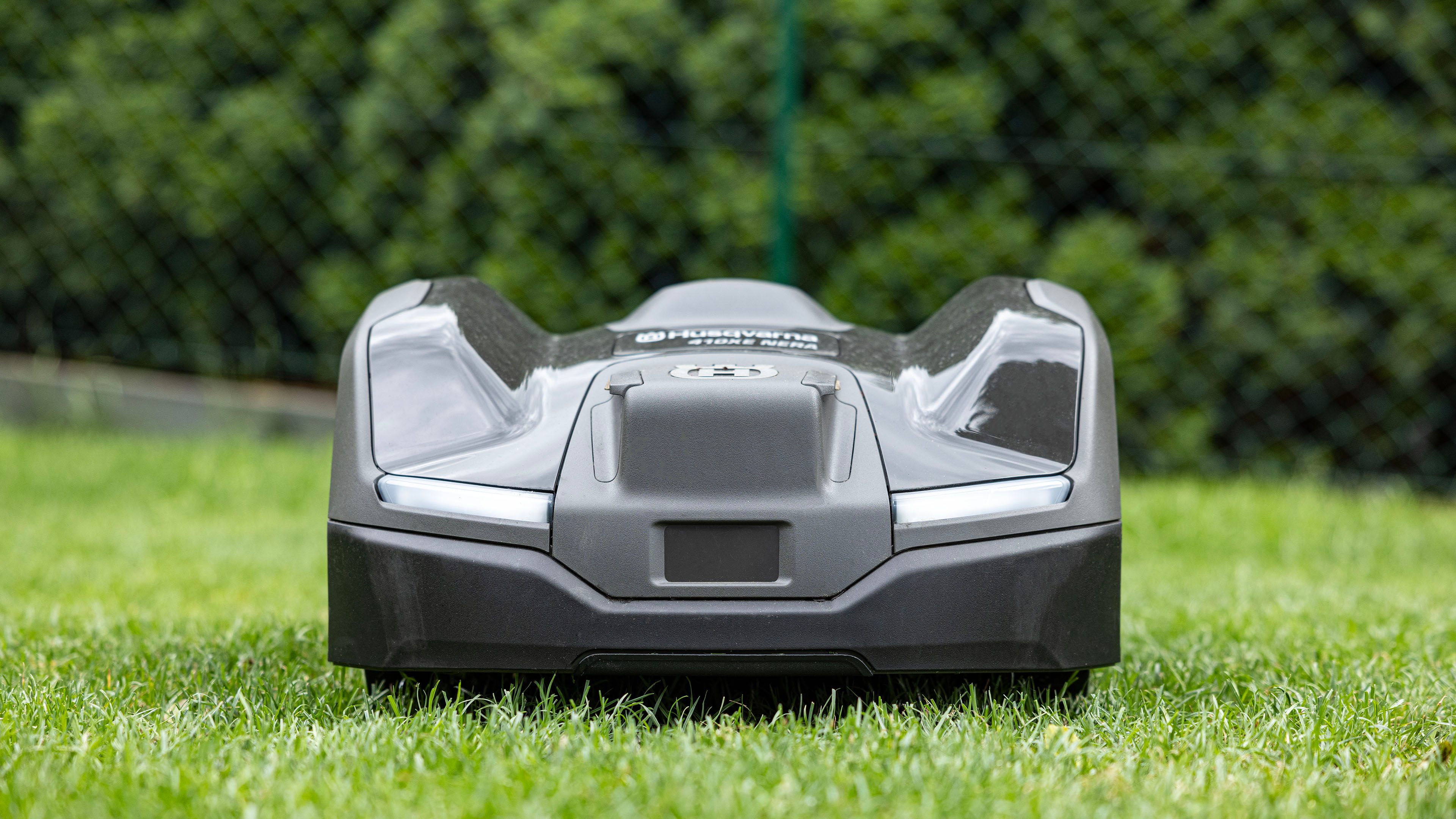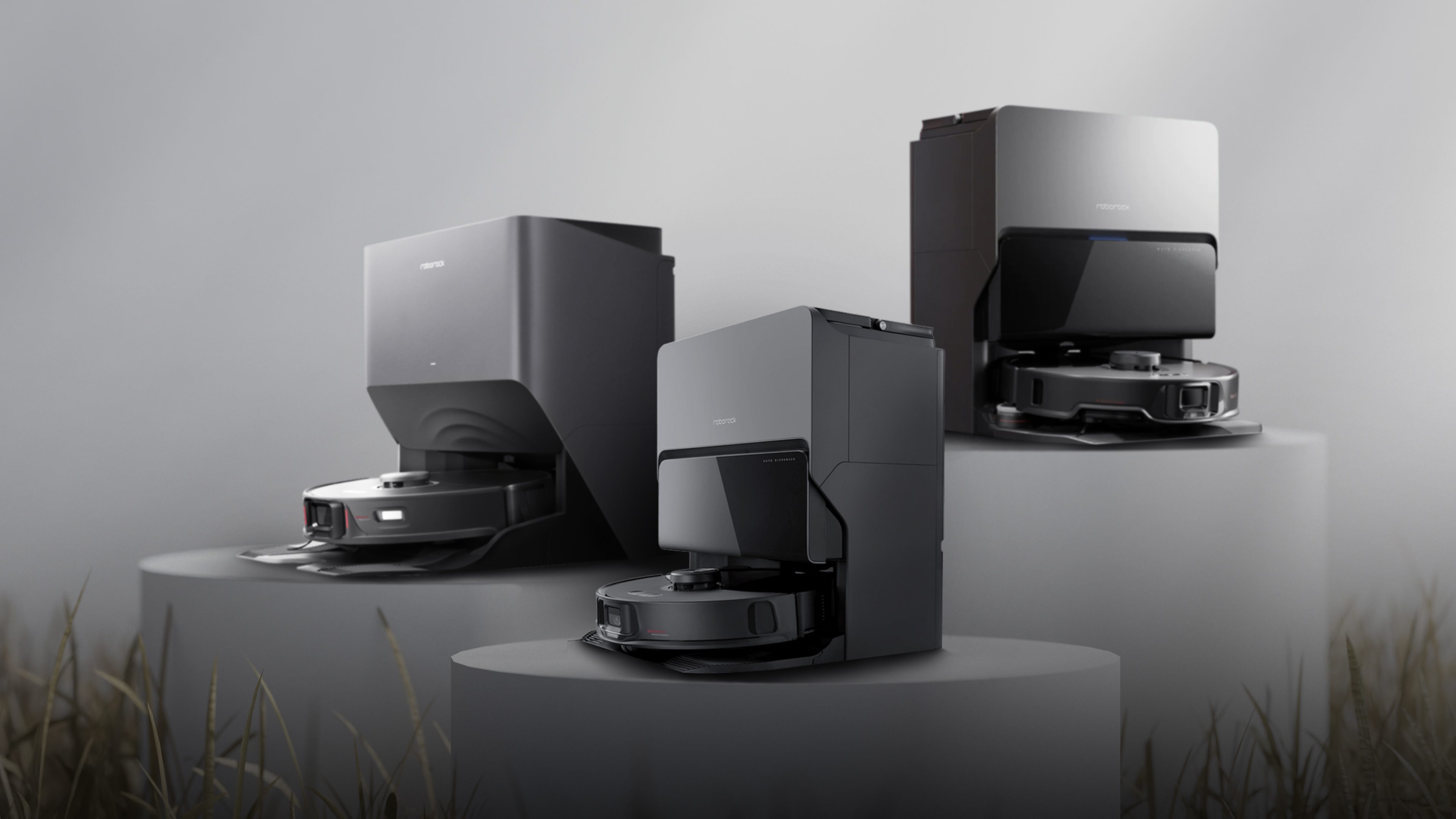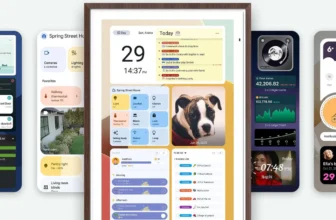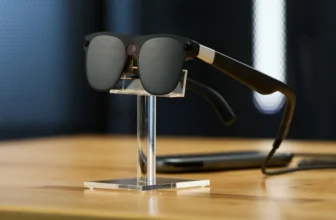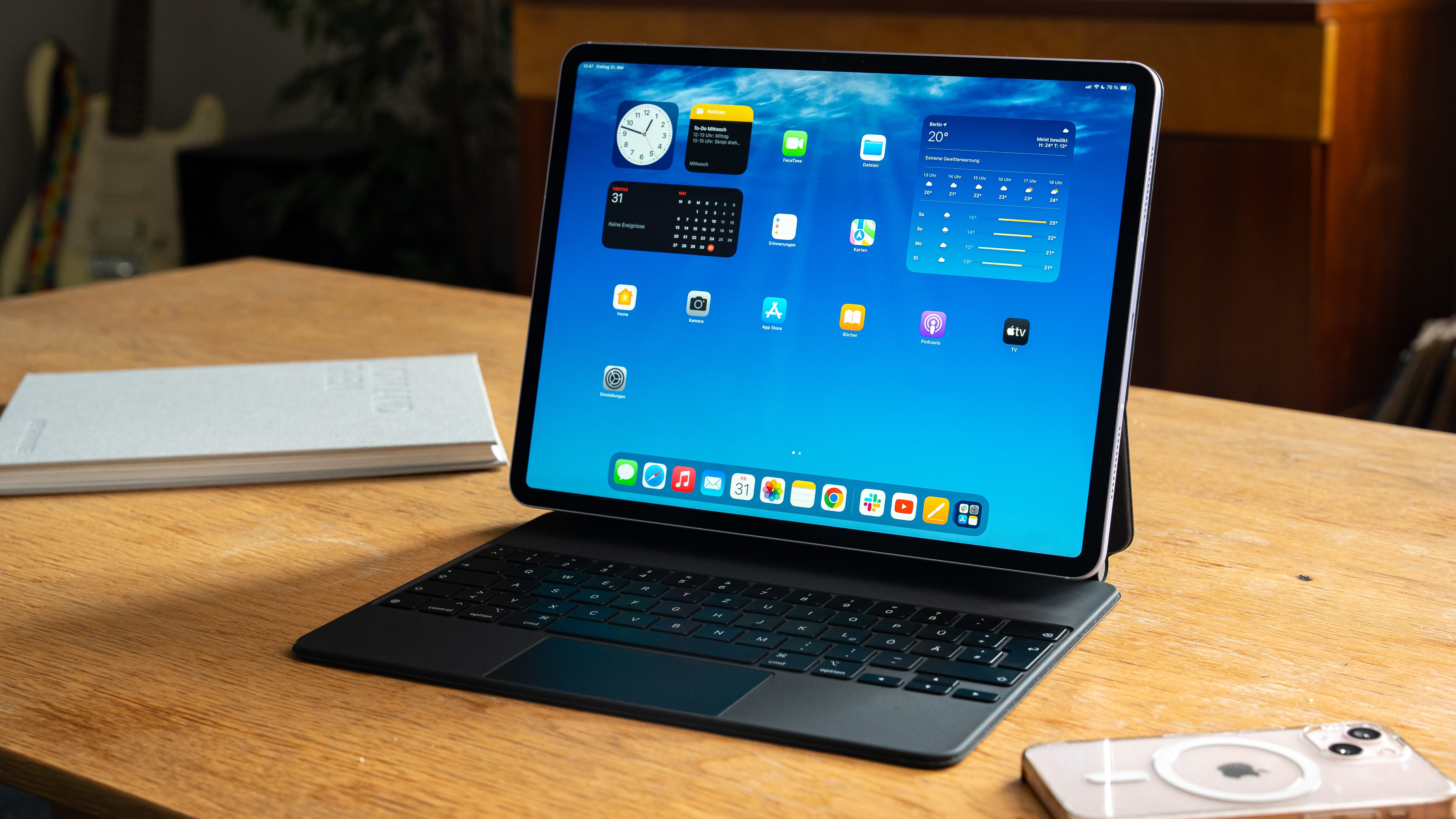
With a starting price of $599, the M2 SoC, and a basic memory upgrade to 128 GB, the iPad Air will be a price-performance beast in 2024. The manufacturer provided us with the 13-inch version including the Magic Keyboard for our test. Does this make the Air a better MacBook alternative? Find out in the nextpit review!
Good
- Great price-performance level (in the basic model)
- Great display despite technical compromises
- Finally support for the Magic Keyboard
- Good endurance despite a larger display
Bad
- Not compatible with older Apple Pencils with magnetic charging
- Display and memory upgrade very expensive
- iPadOS still cumbersome to work with
- USB-C port without Thunderbolt
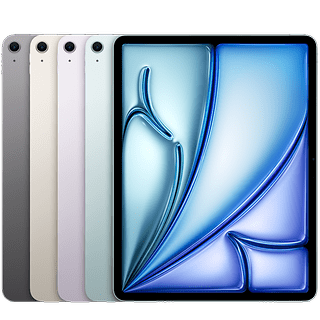

Apple iPad Air 6 13″ (2024): All deals
Summary & Buy
The innovations in the iPad Air 2024 make it the Apple device with the best price-performance ratio. This is mainly due to the integration of the M2 SoC, which was reserved for the iPad Pro in previous years. Thanks to the starting price of $599, the iPad Air is a better deal than the MacBook Air with M3—but the costs rise sharply if you need the 13-inch model and more memory. Before buying, you should also definitely consider whether iPadOS as a mobile operating system is sufficient for your own requirements.
Design & Display
For the first time, Apple is also offering the iPad Air in a 13-inch format. It is therefore practical that Apple has made this new version available to us for a test. Apart from that, not too much has changed when we look at last year’s model: Aluminum casing, four different colors, and a thickness of less than one centimeter. However, a closer look reveals further upgrades.
Pros:
- iPad Air gets two display sizes.
- Impeccable workmanship.
- Front camera on the right (long) side.
Cons:
- Still without Face ID.
- Stereo speakers are clearly inferior to the Pro version.
- Only with LCD, 60 Hz, and without HDR.
If you want to buy the iPad Air 2024, you will have to choose between two display configurations for the first time. If the 11-inch Air was too small for you in the past, you can now also get a 13-inch version, which is particularly useful for multitasking and as a mobile Netflix movie theater. However, with a thickness of 6.1 mm, the new Air is a little thicker than the Pro model, which Apple has as the thinnest product in its lineup at 5.1 mm.
After the initial wow effect, however, you forget that the devices differ in thickness. With a weight of 617 g and thin display edges, the large iPad Air is also a handy and compact device. I have the same impression of the workmanship: in theory, the iPad Pro is of higher quality, but thanks to the aluminum housing and really small gaps, the iPad Air also feels really high-quality.
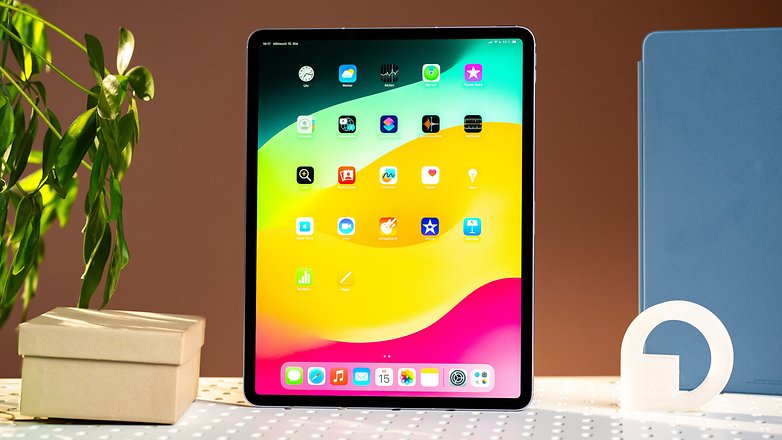
However, we have to accept major compromises when it comes to the display. Even though there is a new size, Apple continues to rely on an LCD panel with a 60 Hz refresh rate and comparatively low brightness of up to 600 nits in the cheaper iPads. Compared to the very good new tandem OLED displays in the Pro models, the Air displays appear outdated both in everyday use and when looking at the data sheet.
Manufacturers such as Xiaomi or Huawei already offer significantly more in their corresponding tablets—and I see a major omission in Apple not simply installing its “old” 13-inch displays from last year’s Pro series in the large Air.
However, if we don’t compare the iPad Air with other models, the display is definitely useful in everyday use. It makes sense to go for the larger version, especially when multitasking via the Stage Manager. At the same time, Apple has applied a new anti-reflective coating that reduces a few reflections. However, working outside with the Air is still accompanied by a lot of “What’s that saying?” and “Do I really look that bad today?”.
However, Apple then introduces some innovations more consistently. For example, the front camera moves from the short side to the long side, where the Apple Pencil Pro is also attached for magnetic charging. Unfortunately, Apple is also consistent in establishing the Pencil Pro as the new stylus. This is because older Pencil models that can be charged magnetically are no longer compatible with the new iPad Air. Anyone who already has one will therefore either have to opt for the older version with USB-C or spend 179 euros on the Pencil Pro.
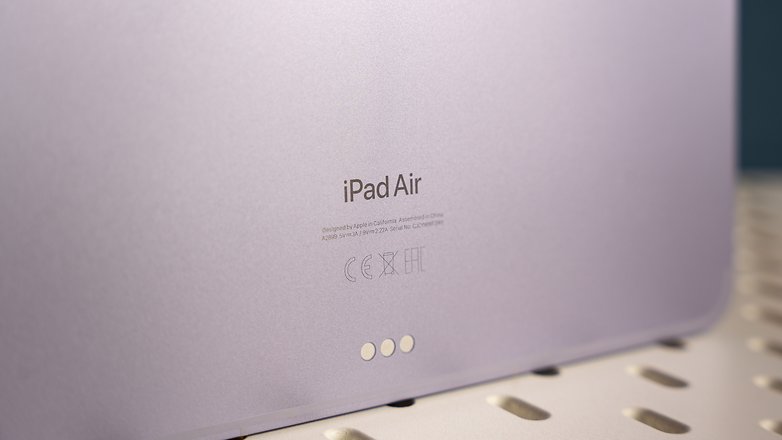
Although there would be enough space in the long side equipped with magnets—the Pro also offers this—the iPad Air still comes with Touch ID instead of facial recognition sensors for Face ID. This is particularly inconvenient if you use the iPad as a laptop with the Magic Keyboard. As a tip, however, you should also register the index finger of your left hand for Touch ID right at the start.
Let’s stay with the Magic Keyboard for a moment. Finally, the “magic” additional keyboard, in which the iPad floats magnetically above the keys, is also compatible with the iPad Air. Again, a little inconsistent, but you have to resort to the older Magic Keyboards, which have no function keys, no escape key (ultra annoying, trust me) and a rubberized surface. So you’re always looking at Pro models in the café, which may already have a better keyboard.
Another final drawback I want to emphasize with the Air is the stereo speakers. While Apple has installed four powerful speakers in the Pro model, the speakers in the Air are significantly weaker. Differences are particularly noticeable in direct comparison, but they are still good for movies and “casual music listening”.
Overall, the iPad Air once again clearly shows that Apple wants to leave gaps between the different iPad variants. And so, when using it, you wish a little too often that you had opted for the Pro model. But if you don’t compare the models directly, the iPad Air is a high-quality tablet with a good display that can now be used as a convertible notebook thanks to the Magic Keyboard.
Software
Despite powerful processors, Apple’s iPads run on the iPadOS mobile operating system. This means you are still tied to the AppStore when installing applications, multitasking only works with the Stage Manager and there are other limitations compared to MacOS. However, iPadOS is very well adapted to the responsive touchscreen and hardware of the iPad.
Pros:
- iPadOS is intuitive and looks fantastic.
- Huge selection of apps and functions.
- Stage Manager makes multitasking on the iPad possible.
Cons:
- Functionally still far behind MacOS and other desktop operating systems.
- Working with iPadOS is often still too cumbersome.
If you want to work with Apple devices, you use MacBooks, iMacs, or the Apple Vision Pro – in the evening on the sofa, you reach for the iPad. This clear division has become increasingly blurred since Apple’s integration of its own M-SoCs. In 2024, the iPad Air will feature the M2 SoC, which has enough power for image editing, video editing, and many other applications. For this test, I therefore mainly wanted to work with the iPad Air to find out whether the slim tablet is a sensible MacBook or notebook alternative.
What Apple does very well in iPadOS is the operation via the 11 or 13-inch touchscreens. Thanks to the intuitive operating system, there’s no need to look up how to use menus, which gestures lead to the right function at which point, and how to use the Apple Pencil, for example. Trial and error usually leads to the solution—this is how responsive OS design should be in 2024.
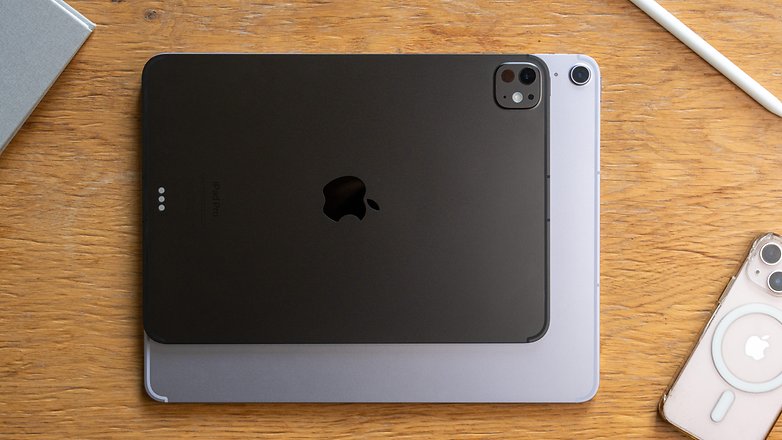
However, anyone who goes beyond the “casual use” of the iPad Air will still have to live with many compromises. Instead of fully-fledged browsers, which now run many applications as web apps, we have to make do with the mobile apps from Chrome, Safari & Co. As a result, we are repeatedly shown mobile pages when browsing, which are not displayed optimally even when desktop mode is activated.
Multitasking, which has even worked with floating windows since the introduction of the “Stage Manager”, repeatedly leads to programs on the iPad that are closed in the background and have to be reloaded first. This leads to delays and repeated frustration. The same applies to file management, which lags far behind the Finder in terms of functionality.
A good example of the unequal treatment of iPadOS and MacOS is the video editing program “Davinci Resolve”, which I use daily on MacOS. There are a number of tabs that switch between different functions. On the iPad, only two of the five tabs are displayed, which means that essential features are missing at first glance. However, using a trick and the program’s shortcut management, all tabs can still be activated. So it seems as if Davinci runs completely on the iPad, but the functions are restricted in order to “optimize” the software for the iPad.
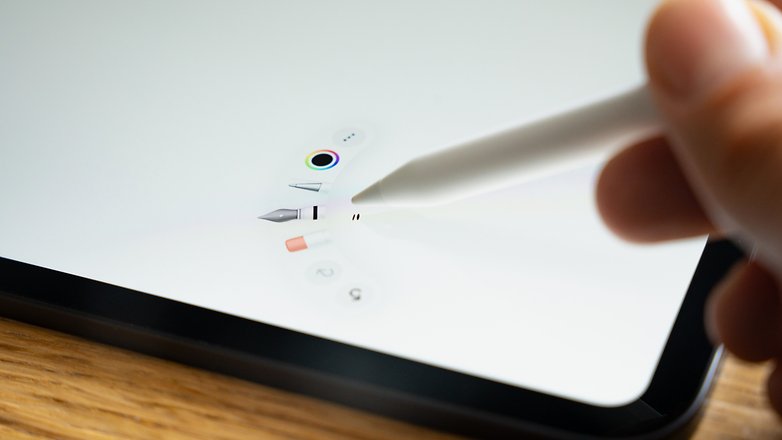
Apple is deliberately moving the iPad closer to its own MacBooks and convertibles from other manufacturers. So I no longer think it makes sense to compare iPadOS with Android as a tablet operating system and consequently praise it. So I’m really curious to see whether there will be a merger of Apple’s operating systems in the future. At the moment, however, I still find the compromises you have to accept with iPadOS very annoying in everyday use. What a shame with such powerful hardware!
Performance and hardware
With the integration of the M2 SoC, Apple has almost completely raised the performance of the iPad Air to the level of last year’s iPad Pro. On closer inspection, it is noticeable that the sixth generation of the iPad Pro still had the option of integrating 16 GB of RAM instead of 8 GB. In addition, the iPad Air 2024 comes without Thunderbolt 4 and is therefore limited when connecting to USB-C monitors.
Pros:
- Very high performance level thanks to M2 SoC.
- Modern wireless standards thanks to 5G, WiFi 6E, and Bluetooth 5.3.
- Standard with 128 GB memory, optionally with up to 1 TB.
Cons:
- USB-C without Thunderbolt 4.
- Gets noticeably warm under power.
While Apple used the launch of the new iPads in 2024 to introduce a new M-SoC for the first time, the new iPad Air “only” makes it to the M2. Which is quite impressive: You get the same performance as in last year’s iPad Pro models even in the cheapest model for 699 euros. And this performance makes the compact iPad a truly flexible workstation.
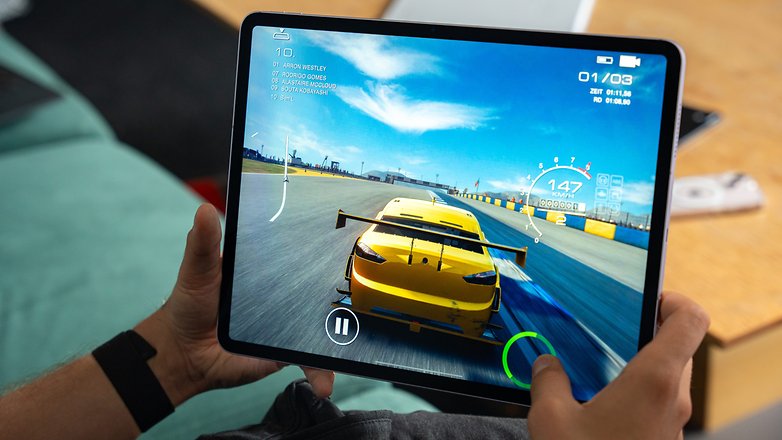
Leaving my criticism of iPadOS aside, the new Air models are some of the most portable, powerful, and efficient mobile devices currently on the market. Even though Qualcomm is bringing a welcome breath of fresh air to the industry with the new Snapdragon X SoCs, the performance of the iPad Air is impressive in benchmarks and in everyday use.
Applications launch in seconds and are basically only slowed down by the 60 Hz of the iPad Air display. Current mobile games such as the racing game “GRID Autosport” now come close to the graphics of the last console generation and I was able to edit images in Lightroom and edit 4K videos with 10-bit color depth in Davinci Resolve effortlessly with the iPad Air.
Benchmark table
| test | iPad Air 2024 M2 | iPad Pro 2024 M4 | MacBook Air M3 | MacBook Pro M3 Pro | MacBook Pro M3 Max |
|---|---|---|---|---|---|
| Geekbench 6 CPU (Single / Multi) | 2.592 / 10.066 | 3.647 / 14.254 | 3.153 / 12.033 | 3.130 / 14.243 | 3.092 / 19.315 |
| Geekbench 6 GPU | 42.101 | 53.307 | 30.457 | 43.050 | 76.507 |
| 3D Mark Wild Life Extreme | 6,116 at 36.6 fps | 8,725 at 52.2 fps | n.a. | n.a. | n.a. |
| 3D Mark Wild Life Extreme stress test |
|
|
n.a. | n.a. | n.a. |
If you’re happy with the 11-inch iPad and 128 GB memory, the iPad Air is a much cheaper alternative to the MacBook Air, which Apple currently lists with M2 and 256 GB memory for $999. Unfortunately, I can’t tell you the price difference, as Apple is still refusing to offer a calculator app in 2024. Joking aside, it’s a saving of $500 with a comparable performance level. Incidentally, the 11-inch version of the iPad Air 2024 with 256 GB of memory costs $699, which brings us to the next point.
Apple has finally upgraded the storage configurations a little in 2024. As already mentioned, it finally starts at 128 GB. In typical Apple fashion, however, the upgrades to the larger display variant and more memory are again very expensive. The iPad Air version in this test report with 1 TB of memory, 5G, and a 13-inch display costs $1,449.
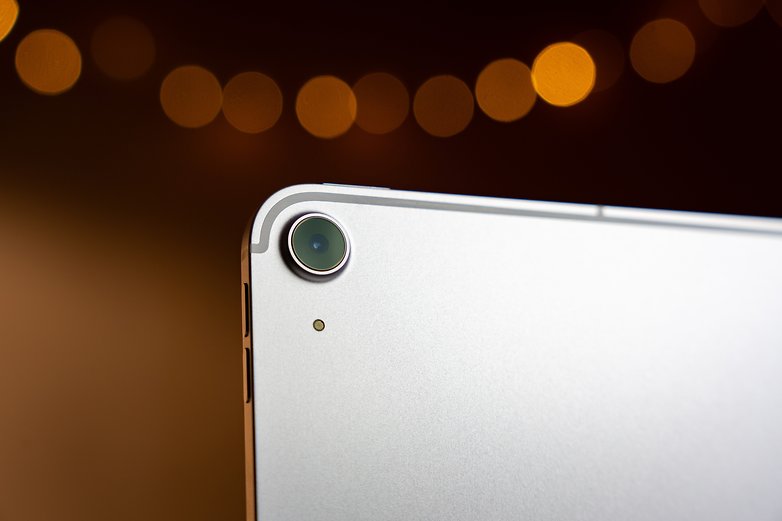
But let’s stay with the hardware of the iPad Air 2024 for a while. The wireless standards 5G, WiFi 6E, and Bluetooth 5.3 are fine in my opinion, even if Apple should upgrade to WiFi 7 as soon as possible. What disappointed me during the test was that USB-C is offered without Thunderbolt 4.
My typical office setup with a USB-C monitor could not be used this way and I had to switch to an HDMI adapter. However, this does not charge the iPad Air, so the Pro model retains an interesting advantage here.
In addition, the iPad Air 2024 repeatedly got very warm under high demands. The temperature was below levels that were uncomfortable or dangerous, but this is where the fanless design seems to reach its limits. On the other hand, you rarely import 2,000 images into the Adobe Lightroom mobile app …
Camera
Since I’ve already typed a lot of words on the Magic Keyboard, I’ll keep it short: apart from the front camera in landscape format, nothing has changed here. For more impressions of the camera, I refer you to
our iPad Air test from last year!
Battery and charging
Although Apple now offers the iPad Air in a larger version and therefore has more space for a larger battery, the battery life remains the same according to the specifications. Apple specifies ten hours with WiFi and nine hours via mobile network. Power is again supplied via USB-C-thanks to support for the Magic Keyboard, an additional USB-C charging port has been added.
Pros:
- Good and, above all, everyday battery life.
- Now with two charging ports via Magic Keyboard.
Cons:
- “Charging bug” during the test period.
- Supplied charging cable is quite short at 1m long.
When you start the iPad Air for the first time, Apple suggests limiting the maximum charging capacity to 80 percent. This should save the battery in the long term and would most likely still be sufficient for sufficient independence from power sockets. With runtimes of up to ten hours, the iPad Air remains very efficient and long-lasting despite its larger display and more powerful SoC.
During the test period, however, meaningful impressions of the battery life were unfortunately somewhat clouded by a software bug. Without any warning message being displayed, the iPad Air did not charge beyond a charge level of ten percent for a long time. A restart solved the problem – and I don’t think this is a systematic problem with the new Apple tablet.
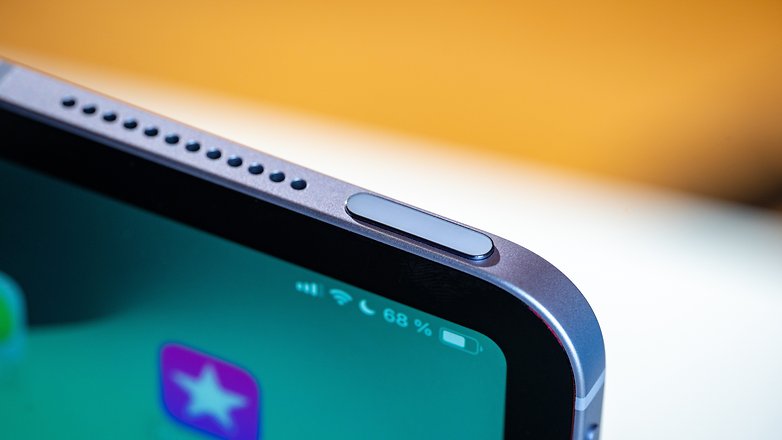
However, I still think the runtimes of up to ten hours are realistic. Unfortunately, there are no reliable battery life benchmark apps for iOS and iPadOS. However, experience shows that Apple’s battery life figures are realistic and my usage times during the test did not cause me to doubt the official figures.
Two other things that I find relevant: The Magic Keyboard comes with an additional USB-C port that enables pass-through charging. This means you can use two USB-C ports after purchase and still charge the iPad with an external display connected. And secondly, although the USB 2.0 cable supplied is of high-quality thanks to its fabric sheathing, it is a little short at 1 m in length.
Final verdict
The basic version of the iPad Air 2024 is currently the Apple device with the best price-performance ratio. The M2 is so well integrated into the 11-inch Air with 128 GB of storage space at a price of $599 that it surpasses the performance of the cheapest MacBook Air. This also applies if we raise the memory to the same level with the 256 GB update and possibly buy a used Magic Keyboard.
This actually results in a particularly powerful work device that meets the performance requirements of most home office work and even video editing and image processing. However, if you need a larger display and more memory with the iPad Air, the costs quickly skyrocket. What starts out as a price-performance tip quickly becomes so expensive that you start to resent the compromises that Apple has to make in the iPad Air.
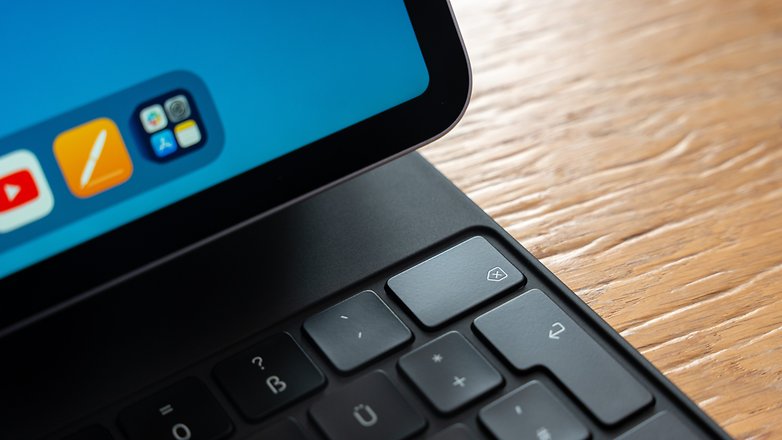
The display is technically behind current tablet alternatives and lags behind the new iPad Pro with tandem OLED display in particular. What’s more, with iPadOS you still have to accept a lot of detours and compromises in 2024. If you’re interested in an iPad Air, I therefore highly recommend reading our latest iPad Pro review, the MacBook Air M3 review, and nextpit’s review of the MacBook Pro with M3 Max.
Despite this note, I think Apple’s innovations in the iPad Air 2024 are extremely successful. The upgrade to the M2 SoC brings performance up to the previous Pro generation, support for the Magic Keyboard was long overdue, and the 13-inch model is also a welcome innovation.


